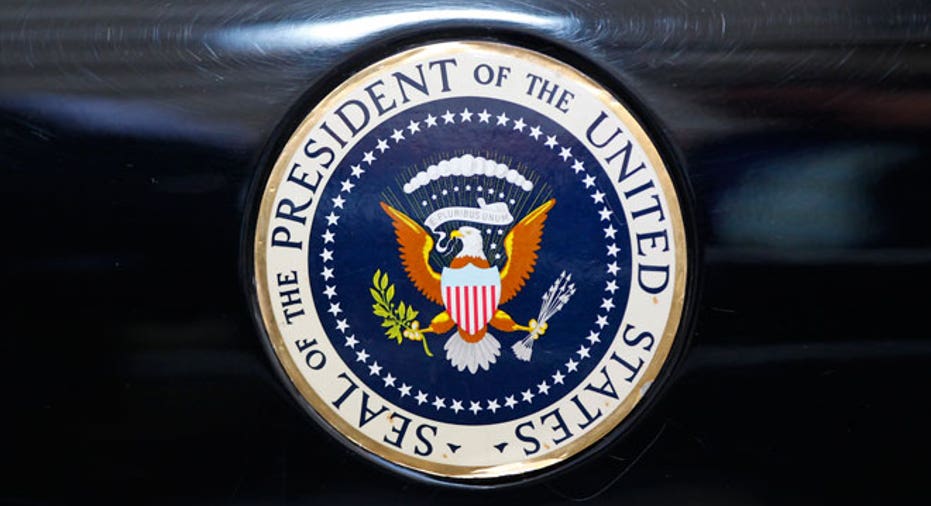History Shows Stocks, GDP Outperform Under Democrats

Thanks to their pro-business approach and the anemic recovery, Republicans would seem to have a clear path to grab the economic mantle heading into the 2012 race for the White House.
However, history actually shows that the U.S. economy, stock prices and corporate profits have generated stronger growth under Democratic administrations than Republican ones.
According to McGraw-Hill’s (NYSE:MHP) S&P Capital IQ, the S&P 500 has rallied an average of 12.1% per year since 1901 when Democrats occupy the White House, compared with just 5.1% for the GOP.
Likewise, gross domestic product has increased 4.2% each year since 1949 when Democrats run the executive branch, versus 2.6% under Republicans.
Even corporate profits show a disparity: S&P 500 GAAP earnings per share climbed a median of 10.5% per year since 1936 during Democratic administrations, besting an 8.9% median advance under Republicans, S&P said.
Due to their “tax-and-spend” reputation, investors expect Democratic administrations to underperform Republican ones and be “poison to any portfolio,” Sam Stovall, chief equity strategist at S&P Capital IQ, wrote in a note. “History shows the opposite to be true, however.”
"You can stoke the economy by spending irresponsibly, but then someone else has to clean up the mess"
To be sure, it’s worth pointing out there is a relatively small sample size as there were just six stretches of each party holding the White House since 1900.
“Slicing and dicing it, particularly with a small sample size, can distort it somewhat,” said Bruce McCain, chief investment strategist at KeyCorp.’s (NYSE:KEY) Key Private Bank.
It’s also not precisely clear why there is such a gap in the performance under the two parties. It may have to do with the Democrats’ tax-and-spend reputation, which may translate to a greater propensity to enact stimulus measures.
McCain said his research shows the markets generate far stronger returns when Republican incumbents win two terms than when Democrats are re-elected.
Who Gets Credit?
The best stretch of market performance since 1900 occurred in 1993-2000 under Bill Clinton, who saw the S&P 500 rally an average of 19.9% per year during his presidency, S&P said.
For Republicans, the strongest market action occurred from 1981-1992 when the S&P 500 climbed an average of 13.5% each year under Ronald Reagan and George H.W. Bush.
While administrations may be quick to take credit for GDP and stock-market growth, it’s not always clear who deserves credit or blame given the lag between policy and its impact on the economy.
According to Stovall, every Republican president since Warren Harding (1921–1923) has experienced a recession within the first two years of office, perhaps due to the excesses of the prior administration.
“You can stoke the economy by spending irresponsibly, but then someone else has to clean up the mess,” said Stovall.
On the other hand, since World War II there have been three two-term presidents whose administrations were bookended by recessions and all three were Republicans, said Stovall.
Spotlight on Obama’s Tenure
President Barack Obama’s economic track record is sure to come under scrutiny this week as the Democratic National Convention kicks off in Charlotte.
Under Obama, GDP has ticked up an average of just 1% each year, underscoring the anemic nature of the recovery. By comparison, GDP rose an average of 2.3% under George W. Bush and 4.2% under Clinton.
Then again, Obama came into office during the worst financial crisis since the Great Depression, one whose origins predated his election.
However, corporate profits have surged an average of 51.8% under Obama, the best out of any stretch of party control since 1933, S&P said. Profits increased at 12.5% per year in Clinton’s White House and 14.2% under Bush.
McCain points out that the surge in profitability in recent years “may be a little bit artificial,” driven largely by cost-cutting measures and delayed investments due to the economic uncertainty.
The S&P 500 has also climbed an average of 12.3% each year since Obama's inauguration, far outpacing the 3.3% mean return for his predecessor.
“Both prices and earnings really bounced back during the Obama Administration. I’ll leave it to the pundits to say who gets the credit for that,” said Stovall.
Who Will Win?
None of this is to say Wall Street is rooting for voters to give Obama another four years in office. Despite its early support for Obama in the last election, campaign contributions from financial-services firms have skewed heavily in favor of his opponent, Mitt Romney.
Yet the smart money continues to bank on an Obama victory: investors on online exchange Intrade see a 58.4% chance Obama is reelected, up from 55.7% when the GOP convention started last week.
Voters remain more undecided, with polls showing Obama and Romney neck-and-neck in support.
“This is a disappointing recovery but not a disastrous recovery. I think that’s part of the reason why [voters] are having a hard time making up their minds,” said McCain. “Clearly people want something better but they are grappling with whether or not a change in administrations is truly going to make that better.”



















